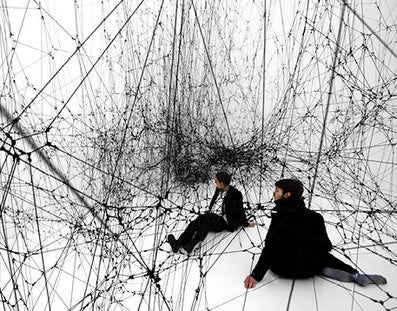The programme is designed to equip the next generation of humanities researchers with the tools to design innovative, imaginative research across disciplines. In close collaboration with highly acclaimed research groups, you’ll develop techniques to connect your research with current societal challenges, and to communicate the results to a broad audience. You’ll benefit from the extensive network our teams have built up with heritage institutions, research institutes, NGOs and business partners, for internships and embedded research projects.
Students in the Humanities (Research) Master specialise in one of five tracks: Critical Studies in Art and Culture; Environmental Humanities; Global History; Linguistics; or Philosophy. You will follow courses belonging to these tracks. On top of this, you will follow broad interdisciplinary courses on methodology and research practice. During the intensive curriculum you will get to know the theories, methods and techniques of your field, develop your research skills and your talent to pose innovative questions, and select research themes. The final goal of the degree is to produce an original research thesis (usually in English), which can become a solid base for an article that could be published in a respected scientific journal. As a part of preparing you for a career in academia, you will also be trained in formulating research questions in English, and in presenting and defending your own research.
Students in the Humanities (Research) Master have studied the language of sexual predators (Forensic Linguistics); or the link between empathy and the first-person perspective in movies, virtual reality, paintings and photography (Critical Studies in Art and Culture); or the history of forced labour and slavery in cooperation with researchers at the International Institute for Social History; or how people tell stories about the environment in nonfictional texts (Literature and Contested Spaces). A Philosophy student spent a semester in the US; one Literature student was an intern at the China Cultural Centre in The Hague, and another one was an intern for the Winternachten Literary Festival. Students from different tracks have collaborated across faculties and with citizens in Amsterdam to solve neighbourhood issues in a Community Service Project.
Whichever track you choose, you’ll hone your critical-thinking and analytical skills, learn the tools of the trade, and have ample opportunity to explore your future career inside and outside academia, whether you want to become a researcher or an entrepreneur.
The start date of this programme is September 1st.

